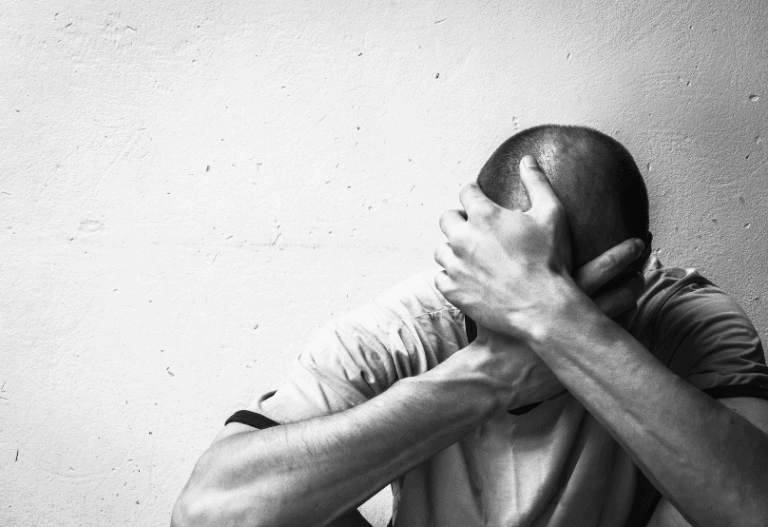What Is Aftercare in Addiction Recovery – and Why It Matters
Successfully overcoming addiction is a significant accomplishment; however, maintaining sobriety requires ongoing support.
Understanding aftercare in addiction recovery and its importance provides individuals with the tools to sustain long-term recovery. Aftercare serves as the bridge from initial treatment to everyday living, fortifying the recovery journey with essential resources and community support.
An effective aftercare addiction program ensures continuous engagement in recovery activities, addressing challenges as they arise and reinforcing positive behaviors.
This detailed guide explores the components, benefits, and critical reasons why aftercare is indispensable for lasting sobriety.

The Role of Aftercare in Addiction Recovery
Aftercare in addiction recovery is a critical and supportive phase that begins after intensive treatment programs, such as inpatient rehab or outpatient therapy, have been completed. The primary goals of aftercare in addiction recovery include relapse prevention, fostering personal growth, and helping individuals reintegrate into their daily lives with confidence and resilience.
Unlike the structured environment of initial treatment, aftercare in addiction recovery is highly personalized to address the unique needs, challenges, and long-term objectives of each individual.
A well-designed aftercare plan in addiction recovery might include ongoing therapy sessions, support group meetings (such as 12-step programs or SMART Recovery), sober living arrangements, and holistic wellness practices like mindfulness or exercise.
These components work together to reinforce the skills learned during treatment while providing a safety net during the transition back to everyday life.
The importance of aftercare in addiction recovery cannot be overstated—it helps individuals maintain accountability, build healthy routines, and navigate triggers or stressors that could otherwise lead to relapse.
By prioritizing aftercare in addiction recovery, individuals increase their chances of sustaining long-term sobriety and achieving a fulfilling, balanced life. Whether through continued counseling, peer support, or lifestyle adjustments, aftercare ensures that the progress made during treatment is nurtured and strengthened over time.
Ultimately, aftercare in addiction recovery is not just an optional add-on but a vital extension of the healing journey, offering ongoing guidance and encouragement when it’s needed most.
Key Elements of Effective Aftercare
- Individual Therapy
Continued counseling sessions address unresolved issues, mental health concerns, and personal triggers. Providing a safe space for discussion, individual therapy is essential for sustained personal development. - Support Groups
Participation in support groups such as Alcoholics Anonymous (AA) or Narcotics Anonymous (NA) offers a network of peers who understand the recovery journey. Shared experiences in these groups can inspire hope and determination. - Life Skills Training
Focus on gaining essential life skills like financial management, job preparation, and communication. These skills are necessary for reintegration into society and sustaining independence. - Relapse Prevention
Developing personalized strategies to prevent relapse involves identifying high-risk situations and adopting coping mechanisms. This awareness significantly reduces the likelihood of returning to substance use. - Medication Management
For those in medication-assisted treatment (MAT), aftercare includes ongoing medication management to support recovery efforts effectively. - Sober Living Arrangements
Transitional housing or sober living environments offer structured support while individuals adjust to a substance-free lifestyle. The peer support available in these settings is a fundamental aspect of continued recovery.
These cohesive elements reinforce the foundations built during primary treatment and nurture both sobriety and personal growth.

Why Aftercare Matters for Lasting Sobriety
Aftercare in addiction recovery is not simply a follow-up phase but a continuous and dynamic process designed to strengthen long-term sobriety against potential challenges. Unlike the structured environment of initial treatment, aftercare provides ongoing support, helping individuals navigate the complexities of daily life while maintaining their hard-earned progress.
The transition from intensive treatment to independent living can be overwhelming, which is why aftercare in addiction recovery serves as a crucial safety net, offering resources, accountability, and encouragement when they are needed most.
Without a strong aftercare plan, individuals risk losing the momentum gained in treatment. That’s why aftercare in addiction recovery should be viewed as an essential extension of the healing process—one that empowers individuals to face challenges, celebrate milestones, and build a fulfilling, substance-free future.
By prioritizing aftercare, those in recovery can solidify their resilience and create lasting change, one step at a time. Some lasting benefits of aftercare in addiction recovery include:
Relapse Prevention
Extensive research and statistics consistently demonstrate that individuals who do not participate in aftercare in addiction recovery programs face a dramatically higher risk of relapse compared to those who maintain structured follow-up support.
Studies indicate that up to 60% of individuals who complete treatment but skip aftercare in addiction recovery may relapse within the first year, underscoring the vital role that continued care plays in sustaining long-term sobriety.
Aftercare in addiction recovery serves as a protective barrier against relapse by reinforcing the coping strategies, behavioral changes, and emotional resilience developed during primary treatment.
When individuals transition back to their daily routines—where triggers, stress, and old habits may resurface—aftercare in addiction recovery provides the necessary tools and accountability to navigate these challenges successfully.
By maintaining an active support network through therapy, 12-step meetings, sober coaching, or alumni programs, those in recovery significantly decrease their chances of reverting to substance use.
The benefits of aftercare in addiction recovery extend far beyond relapse prevention. Regular engagement in aftercare programs helps individuals:
- Strengthen their commitment to sobriety through continuous reinforcement
- Address new or unresolved emotional and psychological challenges
- Build a sober community that fosters encouragement and accountability
- Develop life skills that support independence and self-sufficiency
Without aftercare in addiction recovery, many individuals find themselves unprepared to handle the real-world pressures that can derail progress. Conversely, those who actively participate in aftercare are far more likely to maintain their recovery, improve their quality of life, and achieve lasting personal growth.
Aftercare in addiction recovery is not an optional add-on but a fundamental component of a successful, sustainable recovery journey.
By prioritizing ongoing treatment and support, individuals can fortify their resilience, reduce relapse risks, and build a fulfilling, substance-free future. The statistics speak for themselves—aftercare in addiction recovery saves lives.
Personal Development
True recovery extends far beyond simply abstaining from substance use—it represents a profound journey of self-improvement, healing, and the pursuit of a more fulfilling, healthier life.
Aftercare in addiction recovery plays an indispensable role in this transformative process by providing the structure, resources, and support needed to help individuals rebuild their lives from the ground up.
While achieving sobriety is a monumental first step, aftercare in addiction recovery ensures this progress continues by fostering personal growth, emotional resilience, and the development of meaningful life skills.
One of the most powerful aspects of aftercare in addiction recovery is its ability to help individuals set and accomplish goals that go far beyond maintaining sobriety.
Through personalized aftercare plans, participants gain access to career counseling, educational opportunities, financial planning workshops, and wellness programs—all designed to help them create a stable, purpose-driven future.
Aftercare in addiction recovery recognizes that lasting healing requires addressing all aspects of a person’s life, not just their chemical dependency.
The personal growth facilitated by aftercare in addiction recovery manifests in numerous ways. Many individuals discover new passions, rebuild broken relationships, and develop healthier coping mechanisms to replace old destructive patterns.
Group therapy sessions and peer support networks—key components of most aftercare in addiction recovery programs—provide safe spaces for individuals to practice communication skills, process emotions, and receive feedback from others who understand their journey.
Moreover, aftercare in addiction recovery helps individuals develop the confidence and tools needed to navigate life’s inevitable challenges without reverting to substance use.
Whether facing stress, trauma, or everyday difficulties, the coping strategies reinforced through aftercare in addiction recovery serve as a protective barrier against relapse while promoting continuous self-improvement.
Ultimately, aftercare in addiction recovery transforms the concept of recovery from mere survival to true thriving.
By participating in these vital programs, individuals don’t just stay sober—they learn to build lives worth staying sober for, filled with purpose, connection, and personal achievement. The journey of recovery is lifelong, and aftercare in addiction recovery ensures that every step forward is supported, celebrated, and built upon for lasting success.

Community Support
Isolation is a major risk factor for relapse. Aftercare programs foster supportive communities through groups and networks, ensuring continuous access to people who can provide support and encouragement.
Types of Aftercare Programs
To cater to a wide range of needs and recovery stages, various aftercare programs are available:
Outpatient Counseling
Outpatient therapy provides flexibility, allowing individuals to uphold work, family, and personal commitments while continuing to receive essential support.
12-Step Programs and Peer Support
Programs such as AA or NA offer structured meetings that promote accountability and camaraderie. These gatherings allow participants to share experiences, overcome challenges, and celebrate recovery milestones together.
Therapeutic Communities or Sober Living Homes
Sober living environments provide a transitional space for those not ready for full independence. These communities offer shared experiences, structured discipline, and mutual support to help reinforce sobriety.
Frequently Asked Questions About Aftercare in Addiction Recovery
What is an aftercare addiction program?
An aftercare addiction program is an extension of support following initial addiction treatment, including therapy, support groups, relapse prevention strategies, and life skills training. Its purpose is to maintain and strengthen the recovery process.
How long does aftercare last?
The duration of aftercare varies depending on individual needs and can range from several months to several years. Many individuals benefit from prolonged engagement, as the focus is on enduring recovery and personal development rather than a fixed timeframe.
Why is aftercare crucial in addiction recovery?
Aftercare is critical because it provides continuous support and resources to handle everyday life challenges without relying on substances.
It reduces the risk of relapse through ongoing engagement in supportive networks and treatment strategies.

Reach Out to Oasis Recovery Center for Aftercare in Addiction Recovery Services
The path to sustained sobriety doesn’t end with treatment—it thrives through compassionate, dedicated aftercare in addiction recovery.
At Oasis Recovery Center, we understand that true healing is an ongoing process, which is why our aftercare in addiction recovery programs are designed to support you every step of the way.
Whether you’re transitioning out of inpatient care or seeking ongoing support to strengthen your recovery, our team of empathetic professionals is here to help you build a fulfilling, substance-free life.
Don’t navigate this journey alone. Our aftercare in addiction recovery services—including personalized counseling, relapse prevention strategies, support groups, and holistic wellness programs—are tailored to meet your unique needs and goals.
We believe in treating the whole person, not just the addiction, which is why our approach focuses on emotional growth, life skills, and community connection to empower your long-term success.
If you or a loved one is seeking a supportive, understanding environment to continue the recovery journey, Oasis Recovery Center is here for you. Take the next step toward lasting freedom from addiction—reach out today to learn more about our aftercare in addiction recovery programs or call us today for immediate assistance.
Your brighter future begins with a single conversation. Let us walk with you on this path to healing and hope. You deserve expert care, unwavering support, and a life of renewed purpose. Contact Oasis Recovery Center now—because every day in recovery is a victory worth celebrating.







